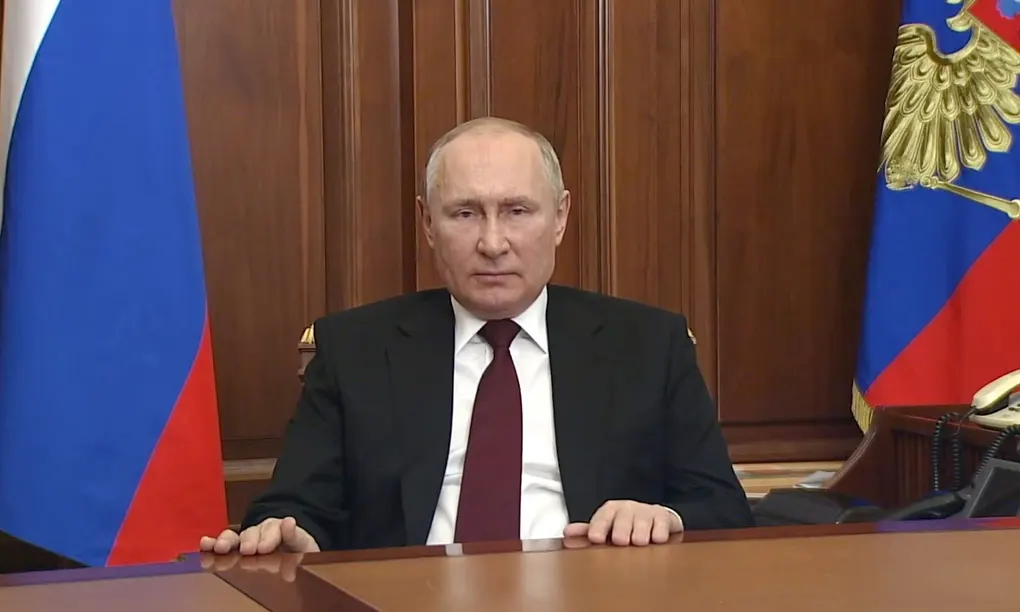London (Parliament Politics Magazine) – It‘s been a bumpy ride for Russian President Vladimir Putin. In the past year, he‘s faced down mass protests, a major drop in approval ratings and an economy crippled by low oil prices and Western sanctions. Now, with parliamentary elections approaching and the country still in turmoil, some are wondering whether Putin‘s grip on power is slipping.
The past year has been tough for Putin. In August, his approval rating hit a five-year low of 61 percent, according to a poll by the independent Levada Center.
How Putin Managed To Stay in Power?
There are a number of reasons why Putin has been able to stay in power for so long.
1- First, he enjoys the support of the Russian military and security services. These institutions are highly loyal to Putin and would be unwilling to support any attempt to remove him from power.
2- Second, Putin has been able to effectively use propaganda to control the narrative about his rule. He has carefully cultivated an image of himself as a strong and decisive leader, and this has helped to maintain popular support for his government.
3- Third, Putin has been willing to use violence and repression against his opponents. This has helped to discourage any serious challenge to his rule.
Political System of Russia
To get a better understanding of the situation, it is necessary to take a look at the Russian political system and how it has changed since Putin came to power. In the past, the Russian president was not as powerful as he is today. The president was mainly a figurehead, while the real power rested with the prime minister and the parliament. However, Putin has changed all that.
He has centralised power in the presidency and has made it so that the parliament and the prime minister are subservient to him. This has led to some people calling him a dictator, but it is worth noting that he was democratically elected and has popular support.
That said, there have been some challenges to Putin’s rule. In 2011, there were mass protests against him, and his popularity has been waning in recent years. However, he has been able to weather these storms and has remained in power.
Read More: Nuclear Threat: Will Russia Use Nuke UK?
Economy And Corruption Factors
The economy has also taken a hit, with Gross Domestic Product (GDP) growth slowing to just 0.7 percent in the first quarter of 2016. That’s the weakest growth since 2009, when the country was in the midst of a financial crisis.
And it’s not just the economy. Russia is also dealing with the aftermath of a massive corruption scandal, which blew up in early 2016. The scandal centered on a scheme in which government officials allegedly embezzled billions of rubles meant for construction projects for the 2014 Winter Olympics in Sochi.
While the scandal didn’t directly implicate Putin, it did damage his image as a clean and effective leader. And it’s not the only corruption scandal to hit his administration in recent years. In 2013, a major corruption probe led to the arrest of Putin’s close ally, former Moscow Mayor Sergey Sobyanin.
The economy and corruption are not the only problems Putin is facing. Russia is also dealing with the consequences of its intervention in Ukraine. The conflict has cost the country dearly, both in terms of lives lost and Western sanctions.
The sanctions, which were imposed in 2014 in response to Russia’s annexation of Crimea, have hit the economy hard. They’ve made it difficult for Russian companies to access international capital markets and have limited the country’s ability to import certain goods.
Also Read: 5 Fun-Filled Things to do Alone in London
Russian-Ukraine Conflict Factor
The conflict in Ukraine has also led to a deterioration in relations with the West. NATO, of which Russia is not a member, has stepped up its military presence in Eastern Europe in response to the conflict. And the United States and the European Union have imposed a series of sanctions on Russian individuals and companies.
All of this has taken a toll on Putin’s popularity. In the past, he’s been able to rely on high oil prices to boost the economy and his own approval ratings. But with oil prices remaining low and sanctions in place, that’s no longer an option.
So, will Putin be removed from power? It’s unlikely. He remains popular among many Russians, who see him as a strong leader. And while his approval ratings have dropped, they’re still well above 50 percent.
But the Russian president is facing some serious challenges. And if the economy doesn’t improve and the situation in Ukraine doesn’t stabilize, Putin could find himself in a very precarious position.
Wrap up
While it is unlikely that Putin will be removed from power in the near future, it is possible that he could face challenges to his rule further down the line. As Russia’s economy continues to stagnate, there is the potential for popular unrest to grow. Additionally, Putin’s opponents could become more bold and organized, and they may eventually be able to mount a successful challenge to his rule.


